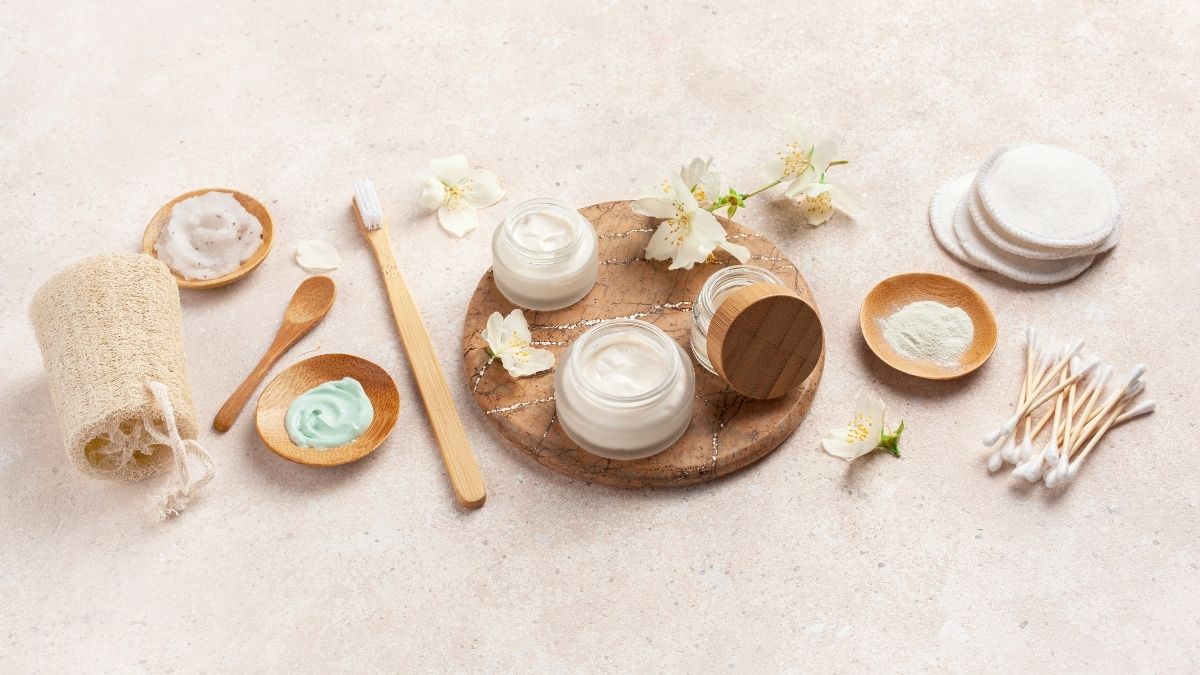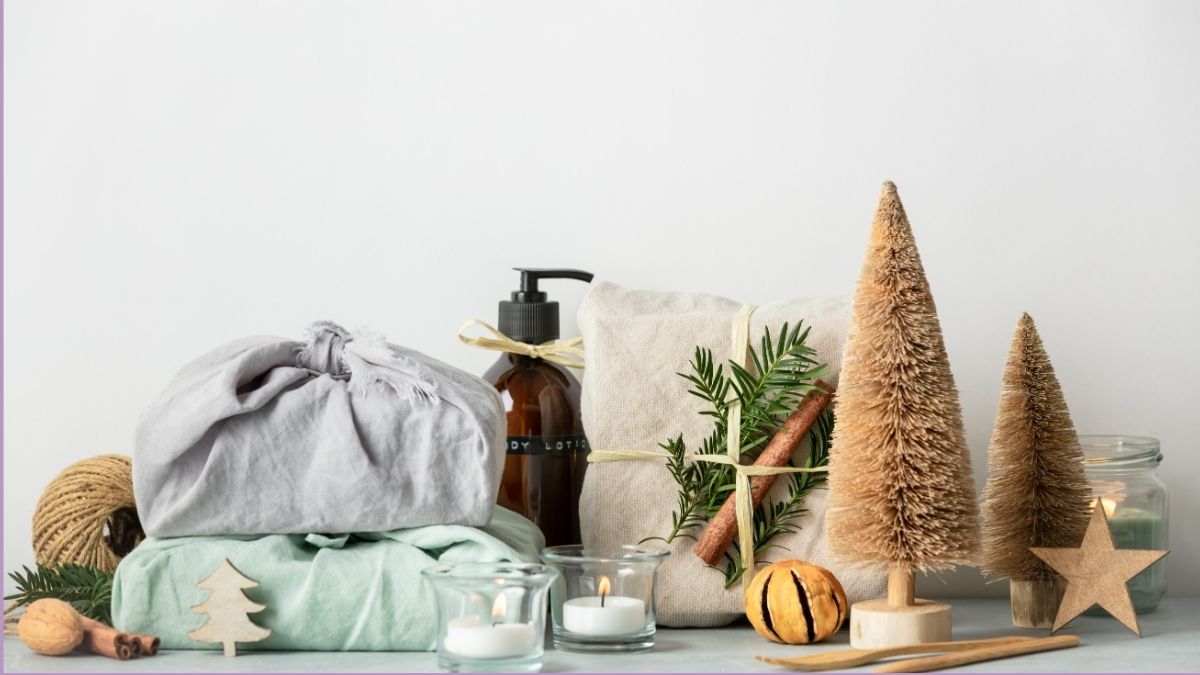
Cold weather can be harsh on the skin, leading to dryness, irritation, and flakiness. While many conventional skincare products promise hydration, they often come with hidden environmental costs—synthetic ingredients, plastic packaging, and harmful chemical waste. Choosing sustainable alternatives ensures that your winter skincare routine nourishes both your skin and the planet.
By switching to natural, plastic-free moisturisers and lip balms and incorporating DIY skincare solutions using organic ingredients, you can keep your skin hydrated while reducing your environmental footprint.
The Environmental Impact of Conventional Skincare Products
Many mass-produced skincare products contain synthetic chemicals, petroleum-based ingredients, and artificial fragrances, all of which can negatively affect both personal health and the environment. Here’s why conventional skincare is a problem:
- Plastic Packaging Waste
Most skincare products are packed in plastic containers that often end up in landfills or oceans. Even if recyclable, only a small percentage of plastic packaging is actually processed, contributing to pollution and microplastic contamination. - Harmful Ingredients
When washed down the drain, common skincare ingredients such as parabens, sulfates, and artificial fragrances can be toxic to marine life. Petroleum-based moisturisers, like mineral oil, also rely on fossil fuel extraction, increasing carbon emissions. - Palm Oil and Deforestation
Many lotions and lip balms contain palm oil, which is a major driver of deforestation. Unsustainable palm oil farming destroys natural habitats and contributes to climate change. - Water-Intensive Production
The production of conventional skincare, especially foaming cleansers and emulsifying lotions, requires large amounts of water. This contributes to excessive water usage and energy consumption during manufacturing.
Natural, Plastic-Free Moisturisers and Lip Balms
Switching to sustainable alternatives helps minimise waste while providing deeply nourishing skincare. Look for products that contain natural ingredients, biodegradable packaging, and ethical sourcing.
- Solid Lotion Bars
Solid moisturisers eliminate the need for plastic packaging and last much longer than liquid lotions. Made from shea butter, cocoa butter, and plant-based oils, they provide intense hydration without preservatives or fillers. - Organic Oils for Deep Hydration
Instead of conventional moisturisers with synthetic emulsifiers, use natural oils such as:
- Jojoba oil – Closely resembles skin’s natural sebum, making it ideal for hydration.
- Rosehip oil – Packed with antioxidants, it helps repair dry, winter-damaged skin.
- Almond oil – Lightweight and fast-absorbing, great for sensitive skin.
- Beeswax and Vegan Lip Balms
Most commercial lip balms contain petroleum-derived ingredients and plastic tubes. Opt for lip balms made from beeswax (or candelilla wax for a vegan alternative) combined with shea butter and natural oils. Choose brands that use compostable paper tubes or metal tins instead of plastic. - Shea Butter and Cocoa Butter Creams
Unrefined shea butter and cocoa butter are great natural alternatives to store-bought lotions. They form a protective barrier over the skin, preventing moisture loss in harsh winter conditions. - Refillable and Zero-Waste Skincare Brands
Many sustainable skincare brands now offer refillable packaging or biodegradable alternatives. Look for brands that use glass, aluminium, or compostable materials to store their products.
DIY Winter Skincare Recipes Using Organic Ingredients
Making your own skincare products ensures that you control the ingredients while eliminating waste. These simple DIY recipes use organic, unprocessed ingredients for maximum hydration.
- Nourishing DIY Body Butter
A whipped body butter easily melts into the skin and provides long-lasting hydration.
Ingredients:
- ½ cup unrefined shea butter
- ¼ cup coconut oil
- ¼ cup almond or jojoba oil
- 10 drops lavender or chamomile essential oil (optional)
Instructions:
1. The first thing to do is to get a double broiler where you can melt the coconut oil and shea butter.
2. Then, take it out from the heat and mix in the almond or jojoba oil.
3. Let the mixture cool until semi-solid, then whip it with a hand mixer until fluffy.
4. Add essential oils and transfer to a glass jar. Store in a cool place and use as needed.
Simple 3-Ingredient Lip Balm
A deeply moisturising lip balm to protect against winter dryness.
Ingredients:
- 2 tbsp beeswax (or candelilla wax for a vegan option)
- 2 tbsp shea butter
- 2 tbsp coconut oil
Instructions:
1. Melt all ingredients together over low heat.
2. Pour into small tins or compostable lip balm tubes.
3. Allow to cool before using.
Hydrating Oat & Honey Face Mask
A soothing mask that calms irritation and locks in moisture.
Ingredients:
- 2 tbsp finely ground oats
- 1 tbsp raw honey
- 1 tbsp plain yoghurt or aloe vera gel
Instructions:
- Mix all ingredients into a smooth paste.
- Apply to clean skin and just leave for 15 minutes.
- Rinse with warm water and pat dry.
Hydrating Sustainably This Winter
Cold weather doesn’t have to mean dry skin or a heavy environmental impact. By choosing natural, plastic-free skincare products and making simple DIY alternatives, you can hydrate your skin in a way that aligns with sustainable living.
Switching to eco-friendly skincare means reducing plastic waste, avoiding harmful chemicals, and supporting ethical brands that prioritise the planet. A little effort goes a long way in making winter skincare healthier for both you and the environment.
FAQs
Are natural oils better than store-bought moisturisers?
Yes, plant-based oils like jojoba and rosehip provide deep hydration without synthetic chemicals or preservatives, making them a cleaner and more effective option.
How long do DIY skincare products last?
Homemade skincare products typically last 3–6 months, depending on the ingredients used. Always store them in clean, airtight containers and keep water out to prevent spoilage.
What’s the best way to store zero-waste skincare products?
Use glass jars, metal tins, or compostable packaging to keep products fresh while minimising waste. Keep them in a dry, cool place and away from direct sunlight.

 Log in with Facebook
Log in with Facebook 









